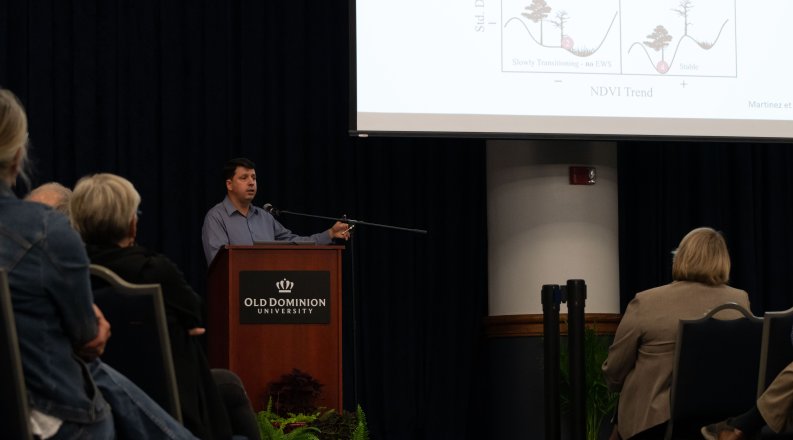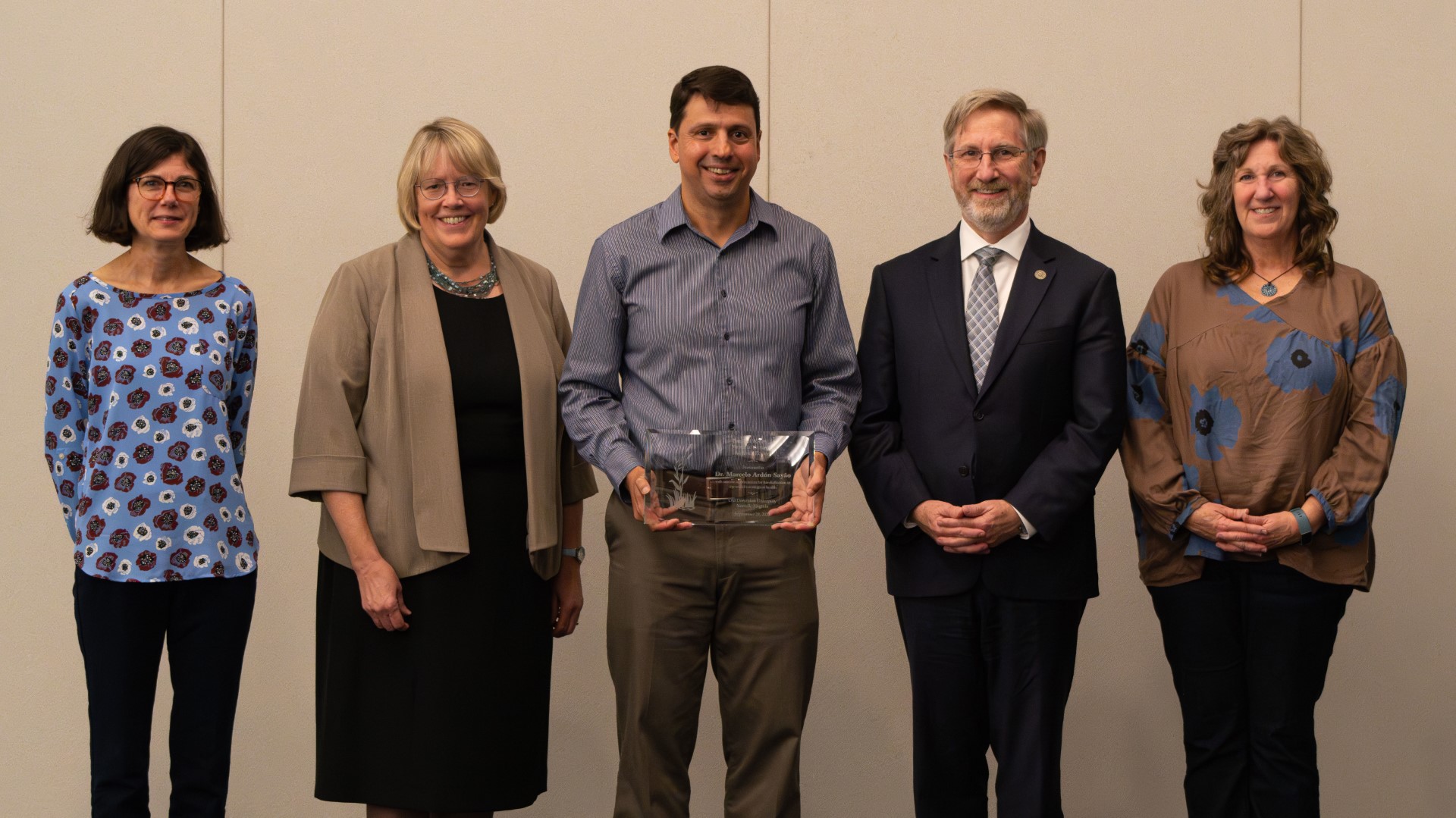by Tiffany Whitfield
Ghost forests sound like the name of the next big Hollywood scary blockbuster movie set to be released in 2023, but in real life, they are indicators of climate change. Old Dominion University scientists and community members gathered at the Chartway Arena at the Ted Constant Convocation Center on September 28, for the 2023 Kirk Wetlands Lecture series hosted by ODU’s Department of Biological Sciences. The guest speaker was Marcelo Ardón Sayão, an associate professor in the Department of Forestry and Environmental Resources at North Carolina State University. His research focuses on environmental sciences, ecosystems, wetlands and streams.
The title of his lecture was Ghost forests as symbols of climate change and resilience.
Ghost forests are areas that used to be forested wetlands and have transitioned into marshes or open water. “Nature is always changing, and these forests and marshes have been dancing up and down the coast,” said Sayão. According to Sayão the changes are occurring are at a “much faster rate.” Research like that of Sayão have documented increases in ghost forests across the east coast of the United States. For example, in North Carolina, both droughts and storms have led to saltwater intrusion, which can lead to the expansion of ghost forests.
The changes that a ghost forest goes through when it turns into a marsh can have positive and negative effects. Ghost forests could mean the “loss and the gain of ecosystems.” The diversity of wildlife, ecosystems, and more are all being impacted by the appearance of ghost forests. Sayão pointed out the various locations of ghost forests appearing up and down the east coast. “We look at the trend and that tells us for some systems they are stable, and some are getting greener recovering from a wildfire,” said Sayão. “Sometimes the places that are getting browner are places we want to investigate those transitions.”
“Ghost forests are reminders that climate change is already here,” said Sayão. “They are indicators that we are not too late, and we can change things. We can avoid those worst impacts of climate change.”
Associate Professor & J. Robert Stiffler Distinguished Professor in Botany at ODU, Lisa Wallace helped select the speaker for this annual lecture. “The Paul W. Kirk Jr. Wetlands Lecture has allowed us to bring internationally recognized scientists to ODU who have presented their experiences in studying a diverse array of wetlands around the world,” said Wallace. “Each time the speakers have connected to the audience by comparing our local challenges, particularly with sea level rise, to what they have discovered in other areas and Dr. Ardón Sayão’s presentation this year taught us that nature is resilient even if the path forward looks different than what we’re used to.”
“As ecologists we spend a lot of time describing problems, but we have to have a good handle on solutions,” said Sayão. He shared some of the lessons he has learned in combining long-term monitoring, field and lab experiments, remote sensing, and citizen science together in an effort to forecast and adapt to the effects of climate change.
There are some key visuals that everyday citizens can spot when it comes to helping to identify the appearance of ghost forests. “Some systems are getting greener and some of the systems are getting browner,” said Sayão. “We can manage them differently depending on what our goals might be.” He believes everyone can play a role and help scientists on the ground in various ways.
“We have ways of identifying what’s happening and we can invest money to see if we want to help accelerate or decelerate the transition,” said Sayão. Also, he believes colleges and high schools should consider creating curriculum and understand how these systems are changing.
“Whether we like it or not, we have to manage these ecosystems and wetlands,” said Sayão. “Restoration is a backward-looking practice, and climate change and sea level rise is making it difficult.” He encourages everyone to think about the different kinds of ecosystems and what adaptation tools can be implemented. “From marshes around the cities to the threat of sea level rise, mitigation and restoration strategies will take time and money,” said Sayão. “We know we need to decrease our greenhouse emissions and that starts with what you can do at home.”
The Kirk Lecture series was established Dr. Allan Kirk in honor of his late father and former ODU Biology Professor, Paul W. Kirk Jr., Ph.D. His donations provide support for this lecture series and the wetlands ecology research program at ODU.




